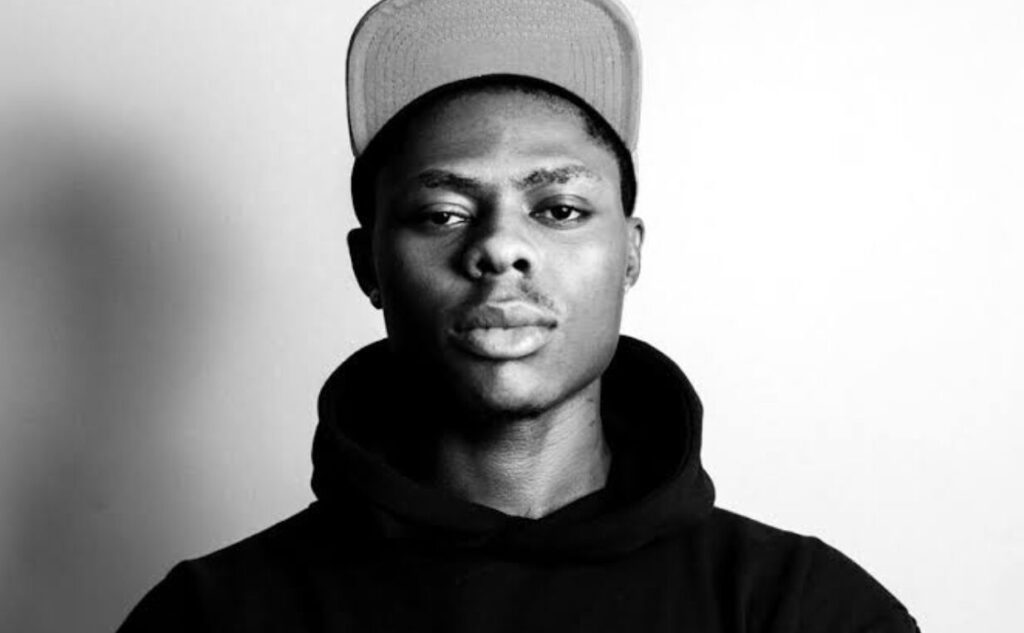In the fast-evolving landscape of Nigerian music, the late Nigerian singer, rapper, and songwriter Ilerioluwa Oladimeji Aloba, popularly known as Mohbad, made a significant mark with his distinctive style of street-hop music. Born on June 8, 1996, Mohbad rose to fame as a part of the Marlian Music crew, under the tutelage of Nigerian artist Naira Marley. His musical journey was meteoric, but tragically, it was cut short when he passed away on September 12, 2023. His death sent shockwaves through the Nigerian music industry and social media platforms, leading to an outpouring of grief, controversy, and demands for justice.
This article delves into the life, career, and tragic death of Mohbad, while exploring how the hashtag #Mohbad has become a rallying cry for justice and accountability on Nigerian social media.
Early Life and Rise to Fame
Mohbad’s early life was not as widely publicized as his career, but like many Nigerian artists, he began from humble beginnings. Growing up in Lagos, Mohbad was a product of the bustling streets, and he channeled his experiences into his music. He initially gained attention for his raw and energetic delivery, blending elements of Afrobeats, street-hop, and trap. His breakthrough came when he signed with Marlian Music, a label founded by Naira Marley, one of Nigeria’s most controversial music figures.
Mohbad quickly established himself with a string of hits that resonated with the youth. Songs like “Koma Jensun”, “Ponmo”, and “Feel Good” showcased his versatility and knack for creating street anthems. His music often reflected the struggles of the everyday Nigerian, earning him a loyal following, especially among those in the streets of Lagos and beyond. His hit song “KPK (Ko Por Ke)” with Rexxie became a national sensation, further cementing his place in the Nigerian music scene.
Career Challenges and Label Controversies
Mohbad’s relationship with Marlian Music was fraught with controversy. Despite the initial success, reports began to surface about tensions between the artist and the label, leading to his eventual departure from the Marlian crew in 2022. Mohbad publicly accused the label, and by extension Naira Marley, of physical assault, intimidation, and exploitation. In a video that went viral, Mohbad was seen with visible bruises, claiming he had been attacked for attempting to switch management. This incident painted a grim picture of what had been going on behind the scenes.
The public nature of his accusations turned the spotlight on the alleged toxic environment at Marlian Music, a label that has often been associated with controversy. Many fans began to see Mohbad as a victim of industry politics and power struggles, while others speculated on the complexities of the situation.
Mohbad’s Tragic Death
On September 12, 2023, news broke that Mohbad had passed away, sparking immediate outcry and confusion. The exact cause of his death was not clear at the time, leading to various rumors and conspiracy theories on social media. His sudden demise at the age of 27, often associated with the infamous “27 Club” of musicians who died young (like Kurt Cobain, Amy Winehouse, and Jimi Hendrix), only added to the speculation.
While some reports suggested health-related complications, others pointed fingers at the controversies surrounding his time with Marlian Music. This further fueled calls for an investigation, with many Nigerians taking to Twitter, Instagram, and other social media platforms to demand answers using the hashtag #JusticeForMohbad. The hashtag quickly gained traction, with fans, fellow musicians, and activists all calling for a deeper probe into the circumstances surrounding his death. The public’s response was not just driven by grief but by a growing frustration with the perceived mistreatment and exploitation of artists in Nigeria’s music industry.
Social Media as a Catalyst for Justice
The power of social media in Nigeria cannot be overstated. In recent years, platforms like Twitter and Instagram have played significant roles in amplifying voices and demanding accountability. In the case of Mohbad, the hashtag #Mohbad became a rallying cry for justice, trending consistently across Nigerian social media. As details of his life and struggles came to light, the conversation broadened, touching on larger issues like mental health, artist exploitation, and the dark side of fame.
Many fans pointed out that Mohbad had expressed signs of distress long before his death. His music, which often delved into themes of struggle and survival, was now being re-examined as a reflection of his personal battles. Videos of Mohbad speaking about his challenges in the industry, as well as his ongoing disputes with Marlian Music, resurfaced, fueling speculation that his death may have been the result of foul play or long-standing pressures.
In a country where institutional justice can be slow or non-existent, social media campaigns like #JusticeForMohbad have often been successful in galvanizing public attention and prompting authorities to act. Several prominent Nigerian artists, including Davido, Olamide, and Bella Shmurda, took to their platforms to mourn Mohbad and demand an investigation into his death.
The Role of the Nigerian Music Industry
Mohbad’s death has sparked intense scrutiny of the Nigerian music industry, particularly the dynamics between record labels and their artists. Many have pointed out that the industry is rife with exploitative contracts, lack of proper mental health support, and power imbalances that leave young, vulnerable artists at the mercy of their handlers.
While Mohbad’s case is particularly tragic, it is not unique. Several other Nigerian artists have previously spoken out about the challenges they faced with their labels, often citing financial manipulation, abusive contracts, and lack of creative freedom. The Marlian Music label, in particular, has come under heavy fire, with many calling for a formal investigation into its operations.
Legacy and the Future of Mohbad
As the dust settles, it is clear that Mohbad’s legacy will not only be defined by his music but by the broader conversation his death has ignited. The outpouring of support and demands for justice reflect a shift in how Nigerian fans perceive their role in the industry. They are no longer passive consumers but active participants in shaping the narrative.
Mohbad’s music continues to gain streams posthumously, with many discovering or revisiting his discography in light of recent events. His songs, once heard as street anthems, now carry the weight of his personal struggles, offering a haunting glimpse into the life of an artist gone too soon.


